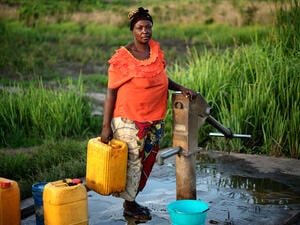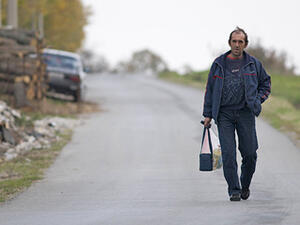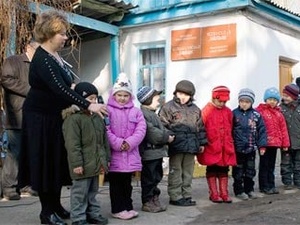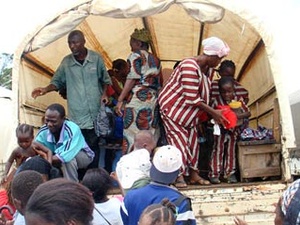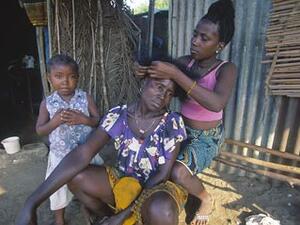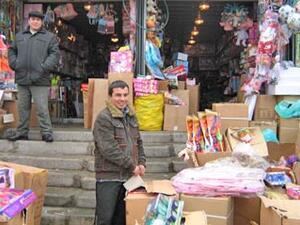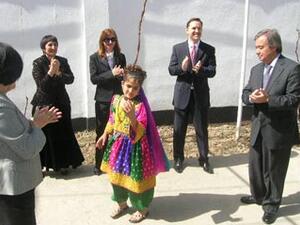Somali Bantus gain Tanzanian citizenship in their ancestral land
Somali Bantus gain Tanzanian citizenship in their ancestral land
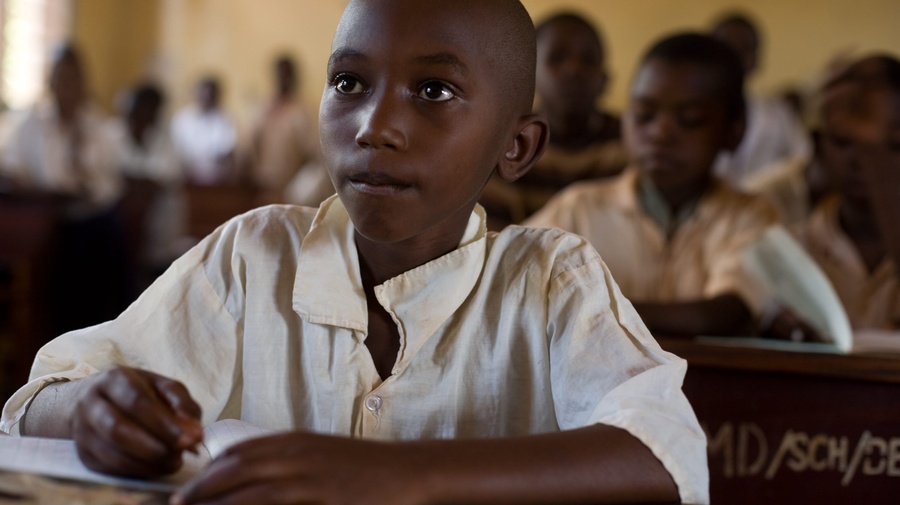
In Somalia, Bantu children were denied education for decades, but this Somali Bantu boy, a new Tanzanian citizen, attends school in Chogo settlement in northeastern Tanzania.
CHOGO, Tanzania, June 3 (UNHCR) - Some 300 years after their ancestors were taken from here to be sold as slaves, almost 1,300 Somali Bantu refugees are now full citizens of Tanzania.
A further 1,500 refugees in Chogo settlement, in the north-eastern coastal region of Tanga, are still in the process of getting naturalized.
Working and living alongside the local population, many of the Somali Bantu refugees and new citizens can trace their origins to this area of the country, from where their ancestors were transported as slaves. The refugees returned in the early 1990s fleeing civil war and the collapse of Siad Barre's regime in Somalia.
Back then, tens of thousands of Somalis travelled on overcrowded and rickety dhows to the Kenyan harbour of Mombasa. A small group of refugees of Bantu origin made their way even further south, to Tanga, reversing the path their ancestors had taken more than three centuries ago.
Ramadhani Abdalah, a Tanzanian Zigua farmer, remembers very well the day the refugees arrived in Tanga.
"I heard about refugees before, but when they came, it was my first time to actually see a refugee," he now recalls. "I was so surprised. They were talking in the same language as I do, Zigua, but they came from Somalia."
Ramadhani lives in one of the neighbouring villages of Chogo settlement where he prepares land for planting. He is hired by a former Somali Bantu farmer and is paid 12,000 Tanzanian shillings (about US$9) for each acre of land he clears.
At first the government of Tanzania, with assistance from UNHCR, hosted the Somali refugees in Mkuyu camp, also in Tanga region. In March 2003, more than 3,000 refugees were transferred from there to Chogo, a newly-constructed settlement some 80 kilometres away, in a move towards naturalizing the Somali Bantus who wished to stay.
Upon arrival in Chogo, each refugee family received more than 2.5 acres (about one hectare) of land, to farm and to build a home. With the help of UNHCR, working with the Tanzanian authorities and the Tanzanian non-governmental organization, Relief to Development Society, a school, health centre and market were constructed.
Since 2005, the new citizens and the 1,500 refugees awaiting citizenship have been supporting themselves and living together with the surrounding communities.
Haji Sefu Ali, one of the elders in Chogo, proudly shows off his farm. "In Chogo, we have named the villages after places in Somalia," he says. "We are tilling land, raising cattle and chicken and are taking care of ourselves."
Life has been a struggle, adds Fatouma, his neighbour and a grandmother of three, but "today, we are citizens of Tanzania. My granddaughters could even become president one day. In Somalia, for a Bantu, that would not be possible."
By Brendan Bannon and Eveline Wolfcarius
in Chogo, Tanzania


